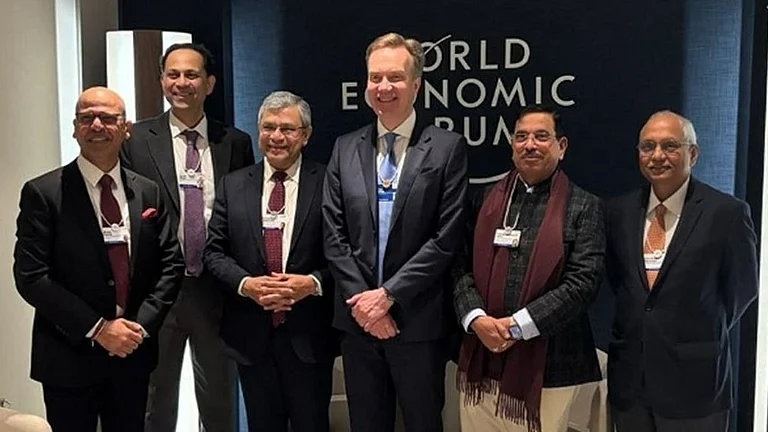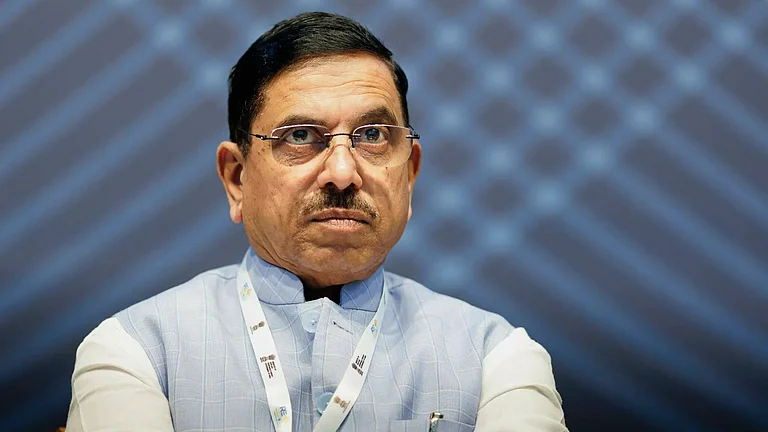Union Minister Pralhad Joshi on Tuesday stressed increasing the efficiency of solar projects, reducing cost and developing energy storage solutions.
Addressing a conference of the International Solar Alliance, Joshi urged stakeholders to focus on integration with smart technologies and noted that the growth of the solar industry would boost economic development.
Joshi who is also President of the 120-nation grouping, said, "Let me give you five reasons why platforms like these matter. It is because the best brains of the business assemble to hold discussions for increased efficiency, cost reduction, energy storage solutions, integration with smart technologies and economic growth and job creation."
The session was held alongside the 7th General Assembly of the International Solar Alliance and attended by international delegates.
The growth of the solar industry boosts economic development by creating jobs in manufacturing, installation, and maintenance of solar systems, Joshi said, citing the progress made by India in this area.
"Giving you the example of India's revolutionary PM Surya Ghar Muft Bijli Yojana. This scheme is expected to create approximately 17 lakh (1.7 million) direct jobs across various sectors," the Minister for New and Renewable Energy (MNRE) said.
India will also be training over 3.25 lakh youth in rooftop solar installation. This training will cover installation and maintenance, enabling young people to pursue careers in the solar industry and promoting entrepreneurship in their communities, he said.
The integration of smart technologies is revolutionising how we manage energy consumption. Today, homeowners can monitor their energy usage in real-time using Internet of Things (IoT) devices and Artificial Intelligence (AI).
"While discussing the future of solar, we need to keep this smart approach in mind. We have to not only maximise efficiency but also contribute to a more sustainable energy ecosystem," he said.
On increasing efficiency, Joshi said traditional solar panels convert about 15-20 per cent of sunlight into electricity, but innovations such as bifacial panels (solar cells on both sides) are pushing this figure higher.
New technologies are significantly enhancing the efficiency of solar panels. These advancements make solar installations more practical and cost-effective, allowing for greater energy production from the same amount of sunlight.
"Under PM Narendra Modi, India has brought about a 76 per cent decrease in solar tariff. For grid-connected solar power plants, tariffs have been reduced from Rs 10.95 during FY 2010-11 to Rs 2.60 during FY 2023-24," Joshi informed the delegates.
As solar energy generation can be intermittent, depending on weather and time of day, new storage technologies are critical.
Energy storage is key to securing a constant solar energy supply to power systems. It provides a solution to achieve flexibility, enhance grid reliability and power quality. This is why today's 2nd Technical Session is on Emerging Storage Technologies, he added.































